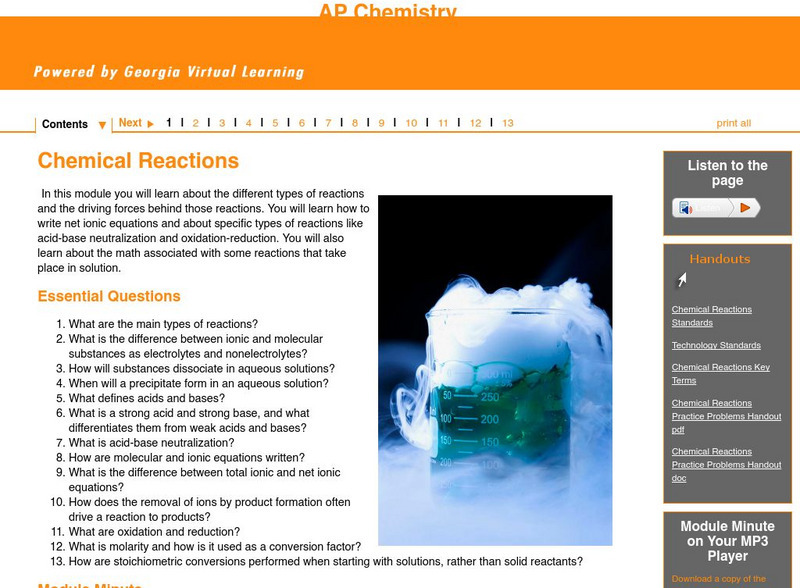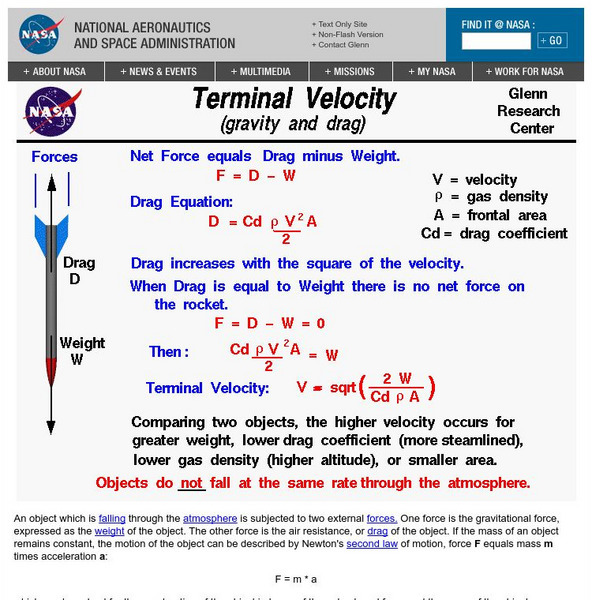Curated OER
That Mu You Do
Students are told that the weight of a car is equal to its mass multiplied by the acceleration due to gravity. When a car is at react on a horizontal road, there must be a normal force with which the road pushes up on the car to keep it...
Curated OER
Investigating Newton's Second Law Of Motion
Students participate in a lesson that investigates Newton's Second Law of Motion. They conduct an experiment of observing balls that are rolled down a ramp. The lesson includes background information for the teacher for preparation and...
Science Geek
Nuclear Chemistry
Which bichemicals wash up on shore? Nucleotides! Presentation covers alpha, beta, and gamma radiation. Includes a comparison of fission versus fusion. Presentation is the second in a five-part series.
Bowels Physics
Torque: Rotational Statics and Rotational Dynamics
Scholars examine the application of torque in relation to motion by viewing a comprehensive presentation that explains the basic concepts related to torque and rotational motion. The lesson ends with examples showing how to calculate...
Curated OER
Virus and Bacteriophage
Students examine the differences between a virus and a bacteriophage. They explore various websites, identify the parts of a virus and a bacteriophage, and construct a model of a virus or bacteriophage.
Curated OER
Weight, Friction, and Equilibrium
In this weight worksheet, students read about weight, friction, and equilibrium. Students then complete 10 matching, 7 fill in the blank, and 8 word problems.
Curated OER
Sciences Working Together
Students research articles about science technology and society. In this science and technology lesson, students answer questions about an article they chose. They share what they learned with their peers.
Curated OER
Vectors: Follow That Arrow
Vectors and their connection to motion. A video will be presented to provide information for the class to use methods of solving vectors with and without grids. Real-world physical concepts will be explored in reference to vectors.
Curated OER
Numerical Determination of Drag Coefficients
Young scholars create a video of an object falling with a drag. In this physics lesson, students calculate drag coefficient using data from Logger Pro. They calculate velocity and acceleration of the object.
Physics Classroom
The Physics Classroom: Newton's Laws: Finding Individual Forces
Through illustrated examples and interactive practice problems, students find the value of forces acting upon objects using force equations.
Georgia Department of Education
Ga Virtual Learning: Ap Chemistry: Chemical Reactions
Students discover the different types of reactions, and the driving forces behind those reactions. They learn how to write net ionic equations, and learn about specific types of reactions like acid-base neutralization and...
NASA
Nasa: Beginner's Guide to Aerodynamics
This site from NASA uses a colorful graphic to illustrate why objects reach terminal velocity. Provides equation for the terminal velocity of an object. Graphic is accompanied by a simple explanation.
Physics Classroom
The Physics Classroom: Newton's Laws: Finding Acceleration
This physics tutorial provides students some practice using a given equation to find the acceleration of an object.













